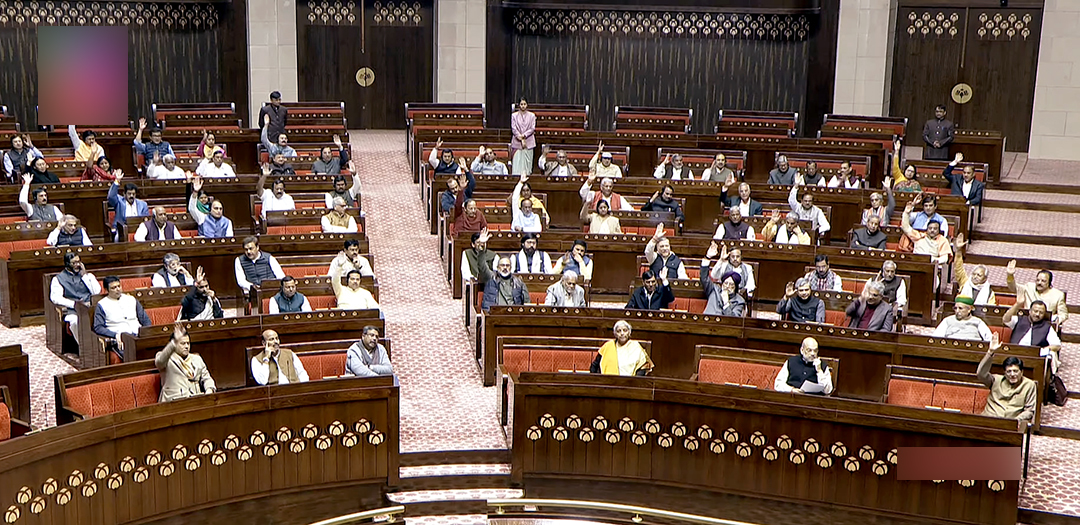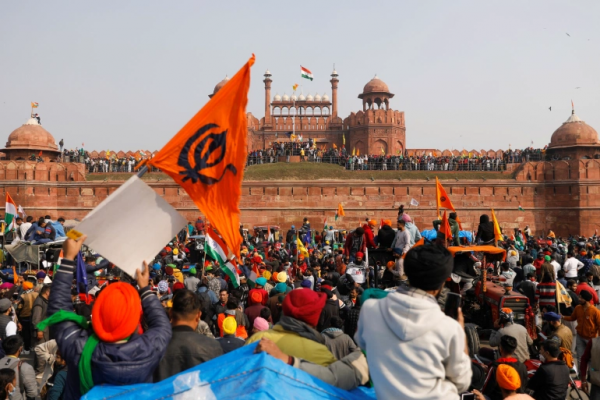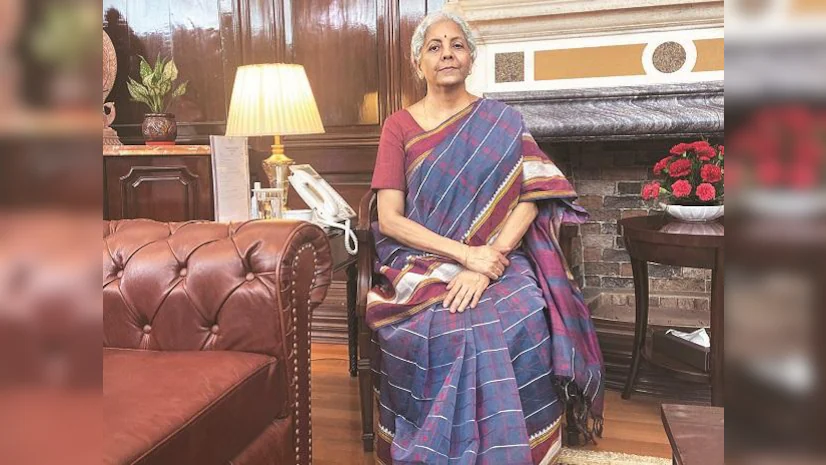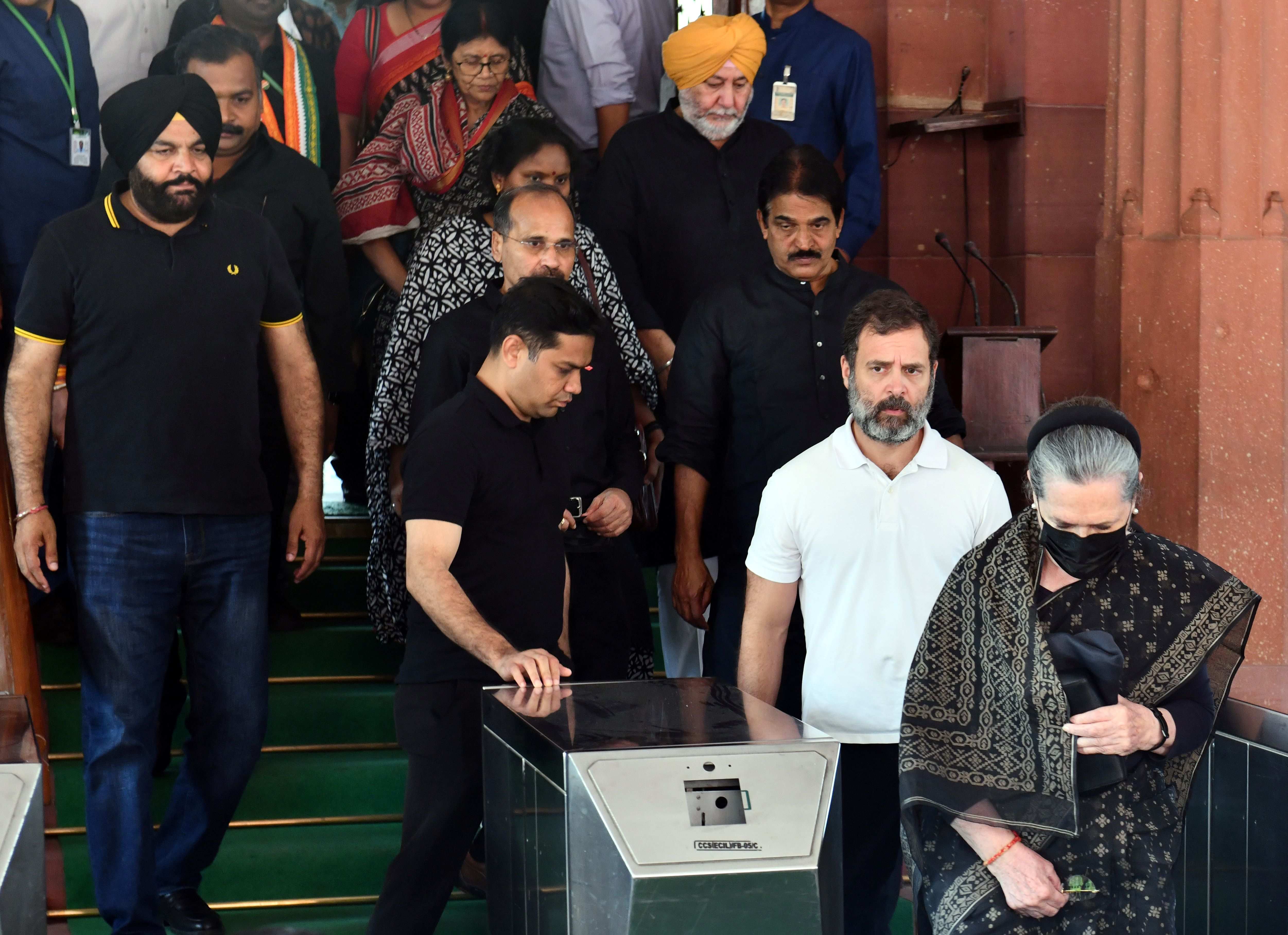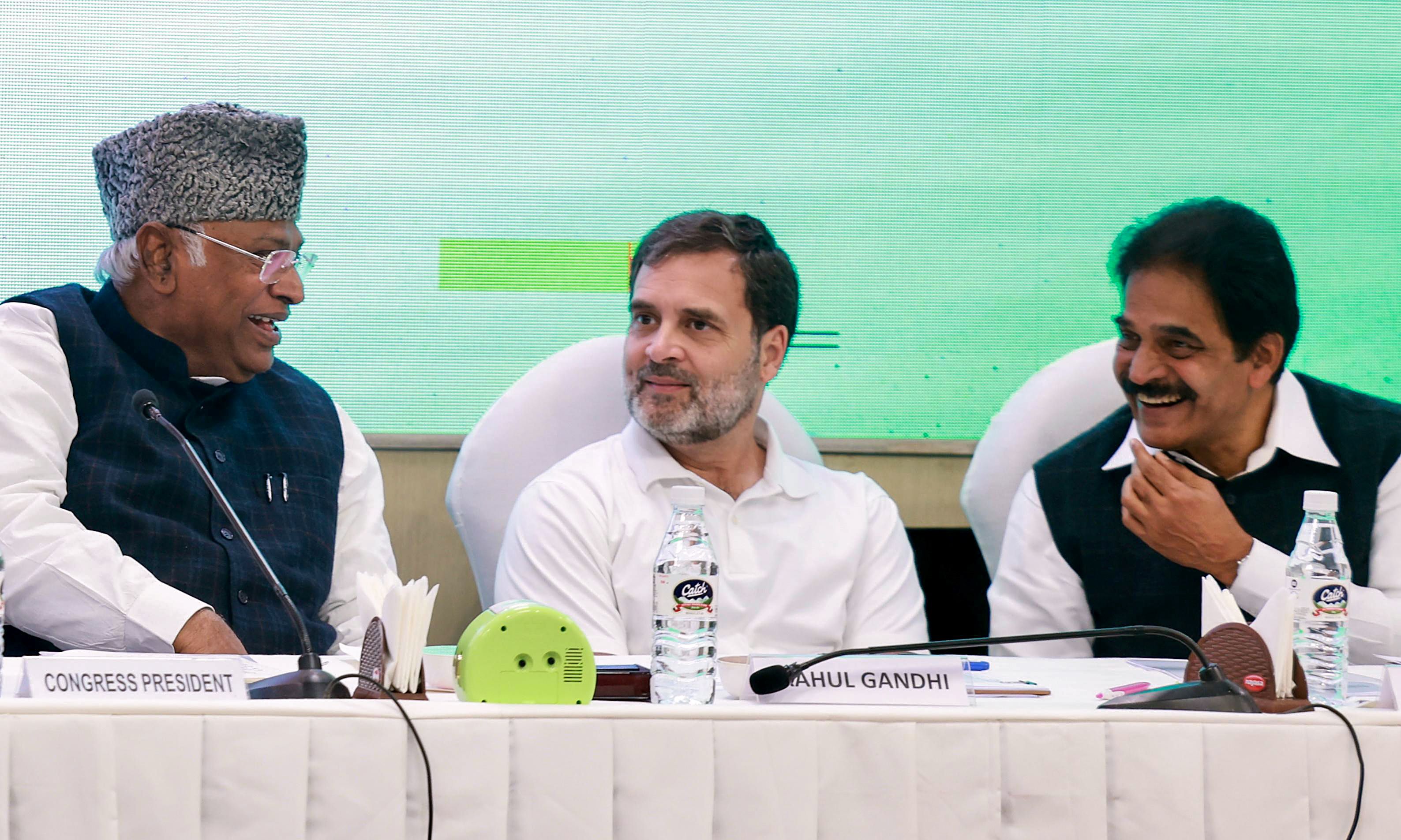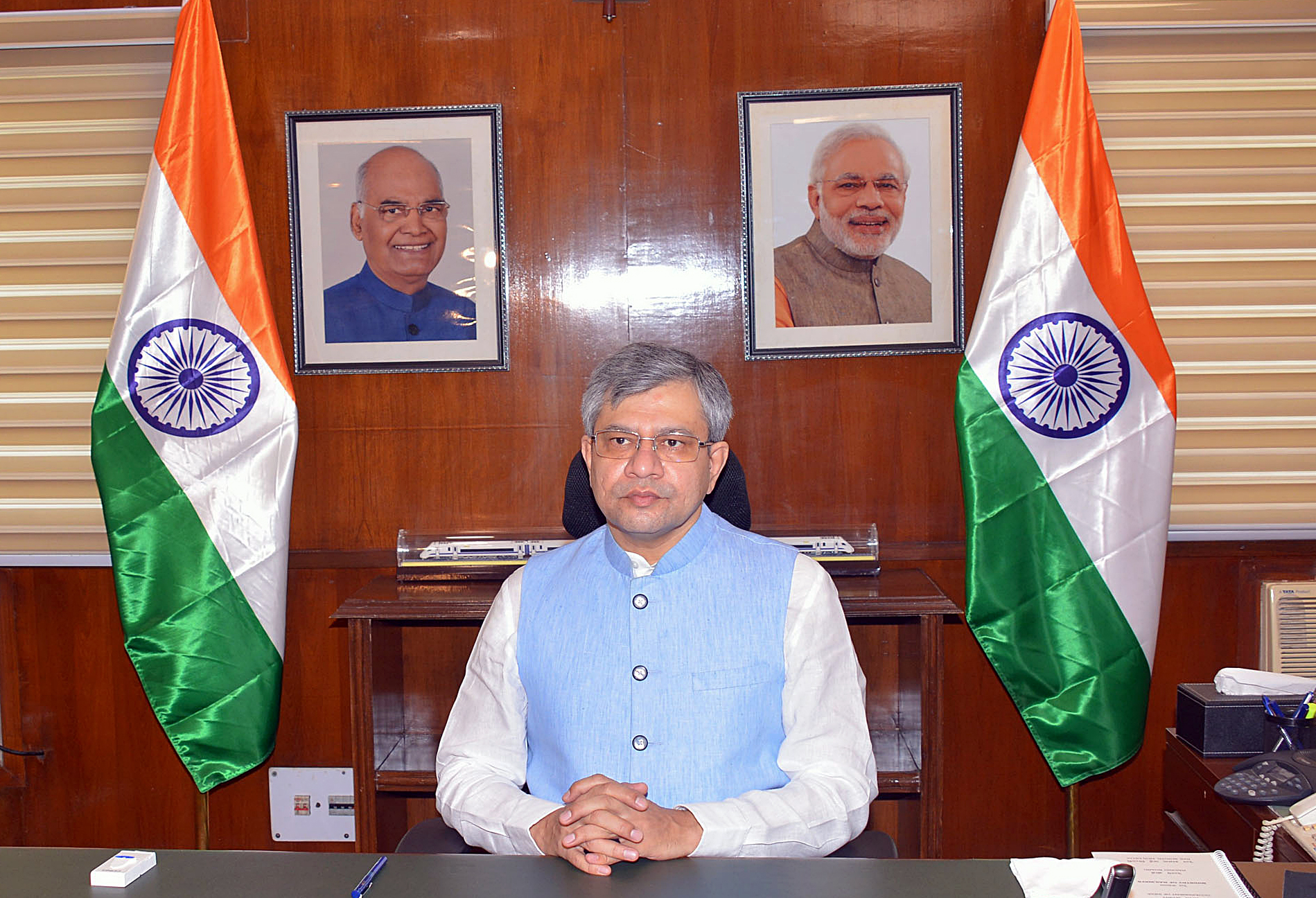The Bill will free people from a colonial mindset, as the British government considered protections against treason and treasury more important than murder or atrocities against women: Amit Shah
Our Bureau
New Delhi
In a historic move on Thursday, the Rajya Sabha passed the three criminal bills — the Bharatiya Nyaya (Second) Sanhita Bill, the Bharatiya Nagarik Suraksha (Second) Sanhita Bill and the Bharatiya Sakshya (Second) Bill — replacing the colonial laws namely the IPC, the CrPC and the Evidence Act with Union Home Minister Amit Shah pointing its a “begging of a new era” aimed at making time-bound justice delivery to Indians by protecting their human rights.
Giving prominence to crimes against women and children, murder and crimes against the nation, these three bills were passed by voice vote. YSRCP, BJD, TDP, AIADMK, TMC (M), and UPP (L) leaders took part in the debate supporting the three bills, with many of them giving suggestions for holding English titles for them along with Hindi. However, the majority of the opposition members did not attend the debate on Wednesday, when the three bills were passed in the Lok Sabha.
The Indian Penal Code (IPC) has been replaced with the Bharatiya Nyaya Sanhita, the CrPC with Nagarik Suraksha Sanhita and the Indian Evidence Act has been replaced with the Bharatiya Sakshya Adhiniyam.
Piloting the three bills, Union Home Minister Amit Shah said it was the “beginning of a new era” as “the purpose of these bills is to give justice, not punishment.”
“For the first time in history,” Shah said, these bills were made by India and approved by the Indian Parliament for Indians.”
The Bill will free people from a colonial mindset, as the British government considered protections against treason and treasury more important than murder or atrocities against women, said the Minister. The Minister said the complete implementation of new criminal laws will ensure an end to ‘tareekh pe tareekh’ era and justice will be given in three years.”
As per the Minister, terrorism has been defined for the first time in the Bharatiya Nyaya Sanhita, and it has been made a punishable offence.
In Bharatiya Nyaya Sanhita Sectiin 113. (1), it is mentioned that “whoever, with intent to endanger or is likely to endanger the unity, integrity, sovereignty, security economic security or sovereignty of India or to cause or spread terror among the public or any section of the public in India or in any foreign country, commits any act using bombs, dynamite, explosive substances, poisonous gases, nuclear with intent to cause death to any person or persons, damage to property, or manufacture or smuggling of currency or so, he commits terrorist acts”.
In the bill, terrorist acts are punishable with the death penalty or life imprisonment without parole. A range of terrorist offences have also been introduced in the bill, and it is pointed out that destroying public facilities or private property is a crime. Acts that cause ‘widespread loss because of damage or destruction of critical infrastructure’ are also covered under this section.
In organised crime, if a person is killed, the bill says, the accused can be sentenced to death or life imprisonment. A fine will also be imposed, which will not be less than Rs 10 lakh. Provision for punishment has also been made for those who help in organised crime.
On mob lynching, Shah said a new provision on crime related to murder committed on the basis of race, caste and community has been included, for which a provision of life imprisonment or the death penalty has been made.
A new provision related to snatching also. There will now be more severe penalties for serious injuries that result in near-disability or permanent disability.
The practise of filing a zero-FIR has been institutionalised. The First Information Report (FIR) can be lodged anywhere, irrespective of the area in which the crime took place. The victim’s right to information has been ensured by these laws. The victim has the right to get a copy of the FIR free of charge. There is also a provision to inform the victim about the progress of the investigation within 90 days.
A timeline has been added in 35 sections of Bharatiya Nagrik Sukraksha Sanhita, which will make the speedy delivery of justice possible. The bill prescribes a time limit for the initiation of criminal proceedings, arrest, investigation, charge sheet, proceedings before a magistrate, cognizance, charges, plea bargaining, appointment of an assistant prosecutor, trial, bail, judgement and punishment, and mercy petition.
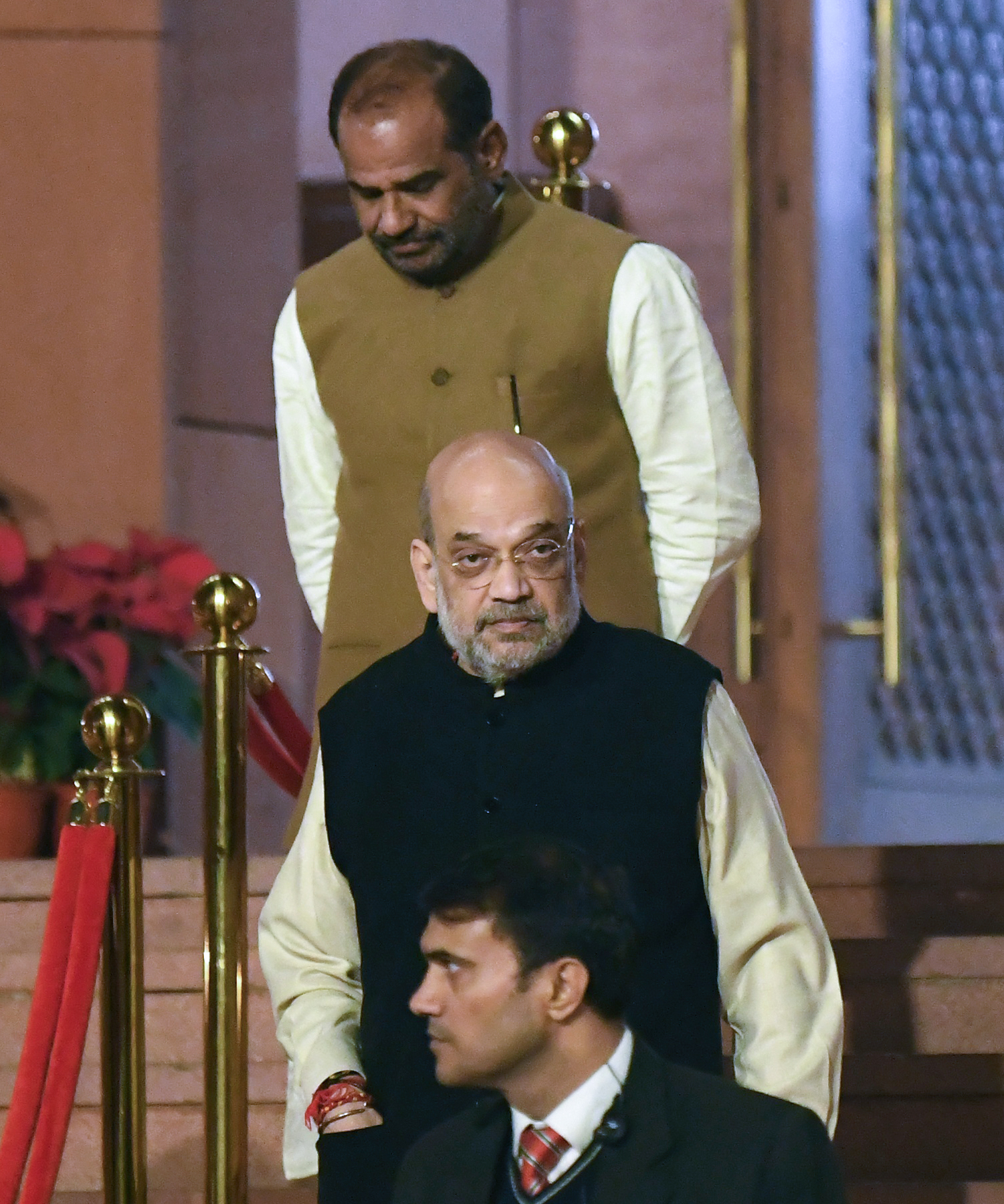
This process of reforming the three laws of the criminal justice system was started in 2019 and 3,200 suggestions in this regard were received from various stakeholders. Union Home Minister Amit Shah held more than 150 meetings and these suggestions were thoroughly discussed in the Home Ministry.
Calling the passage of three new criminal Bills in Parliament a ‘watershed moment’ in Indian history, Prime Minister Narendra Modi on Thursday said that these Bills mark the end of colonial-era laws.
Prime Minister Modi said these transformative Bills are a testament to India’s commitment to reform. “The passage of Bharatiya Nagarik Suraksha Sanhita, 2023, Bharatiya Nyaya Sanhita, 2023 and Bharatiya Sakshya Adhiniyam, 2023 is a watershed moment in our history. These Bills mark the end of colonial-era laws. A new era begins with laws centered on public service and welfare,” PM Modi posted on X.
PM Modi added, “These transformative Bills are a testament to India’s commitment to reform. They bring our legal, policing, and investigative systems into the modern era with a focus on technology and forensic science. These Bills ensure enhanced protection for the poor, marginalised and vulnerable sections of our society.”
Stating that the government has bid goodbye to the outdated sections on sedition, PM Modi said, “At the same time, these Bills come down heavily on organized crime, terrorism and such offense which strike at the root of our peaceful journey to progress.”
New India, New Laws
Crimes against women and children
*The Bharatiya Nyaya Sanhita has introduced a new chapter titled ‘Crimes against women and children’ to deal with sexual crimes.
* This bill is proposing changes in the provisions related to rape of women below 18 years of age.
* Provision related to gang rape of a minor women to become consistent with POCSO.
* In the case of girls below 18 years of age, a provision has been made for life imprisonment or death penalty.
*Provision of 20 years imprisonment or life imprisonment in all cases of gang rape.
Terrorism
* Terrorism has been defined for the first time in the Bharatiya Nyaya Sanhita.
* It has been made a punishable offence.
* Explanation: Bharatiya Nyaya Sanhita 113. (1)
* Terrorist acts are punishable with death penalty or life imprisonment without parole;
*A range of terrorist offenses have also been introduced.
Organised Crime
*A new criminal section related to organized crime has been added.
*Illegal activity done by syndicates has been made punishable.
* The new provisions include armed rebellion, subversive activities, separatist activities or any act threatening the sovereignty, unity and integrity of India.
* Small organised crimes have also been criminalised, punishable with imprisonment of up to 7 years. The provisions related to this are in Section 112.
* Economic offences are also defined as: acts such as tampering with currency notes, bank notes and government stamps, running any scheme or embezzlement in any bank or financial institution;
Victim-centric
* Victim-centric reforms in the criminal justice system have 3 key features:
1. Right to Participation (Opportunity for the victim to express his views, BNSS 360)
2. Right to Information (BNSS Section 173, 193 and 230)
3. Right to compensation for loss
And all these three features have been ensured in the new laws.
* The practice of filing zero FIR has been institutionalised (BNSS 173)
FIR can be lodged anywhere, irrespective of the area in which the crime took place.
* Victim’s right to information
Treason
*Sedition – Sedition has been completely removed.
* To encourage the sentiments of separatist activities
* Threatens the sovereignty or unity and integrity of India;
* IPC Section 124A talks about “against the Government”, but Bharatiya Nyaya Sanhita Section 152 talks about “sovereignty or unity and integrity of India”.
* There was no mention of ‘intent or purpose’ in the IPC, but in the new law there is mention of ‘intent’ in the definition of treason, which provides safeguards for freedom of expression.
* Now words like hatred and contempt have been removed and words like ‘armed rebellion, destructive activities, and separatist activities’ have been included.
















